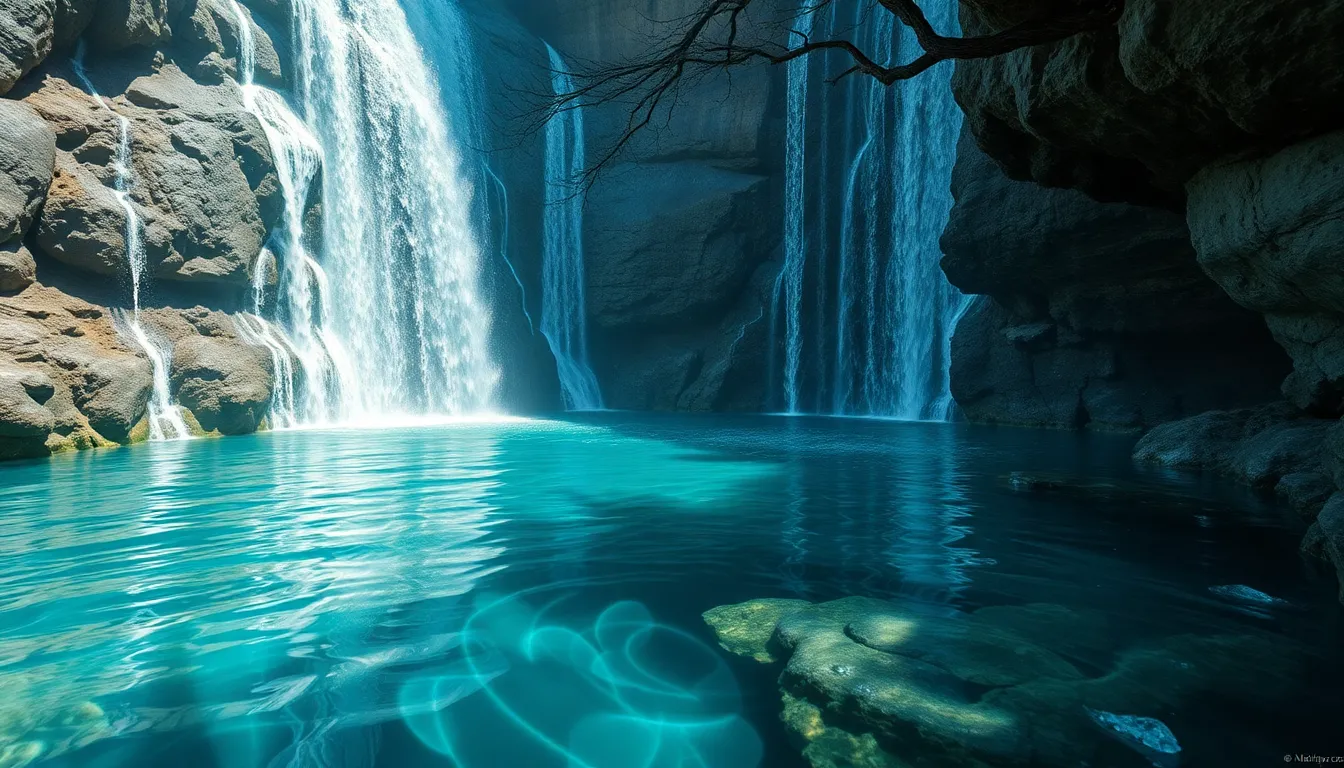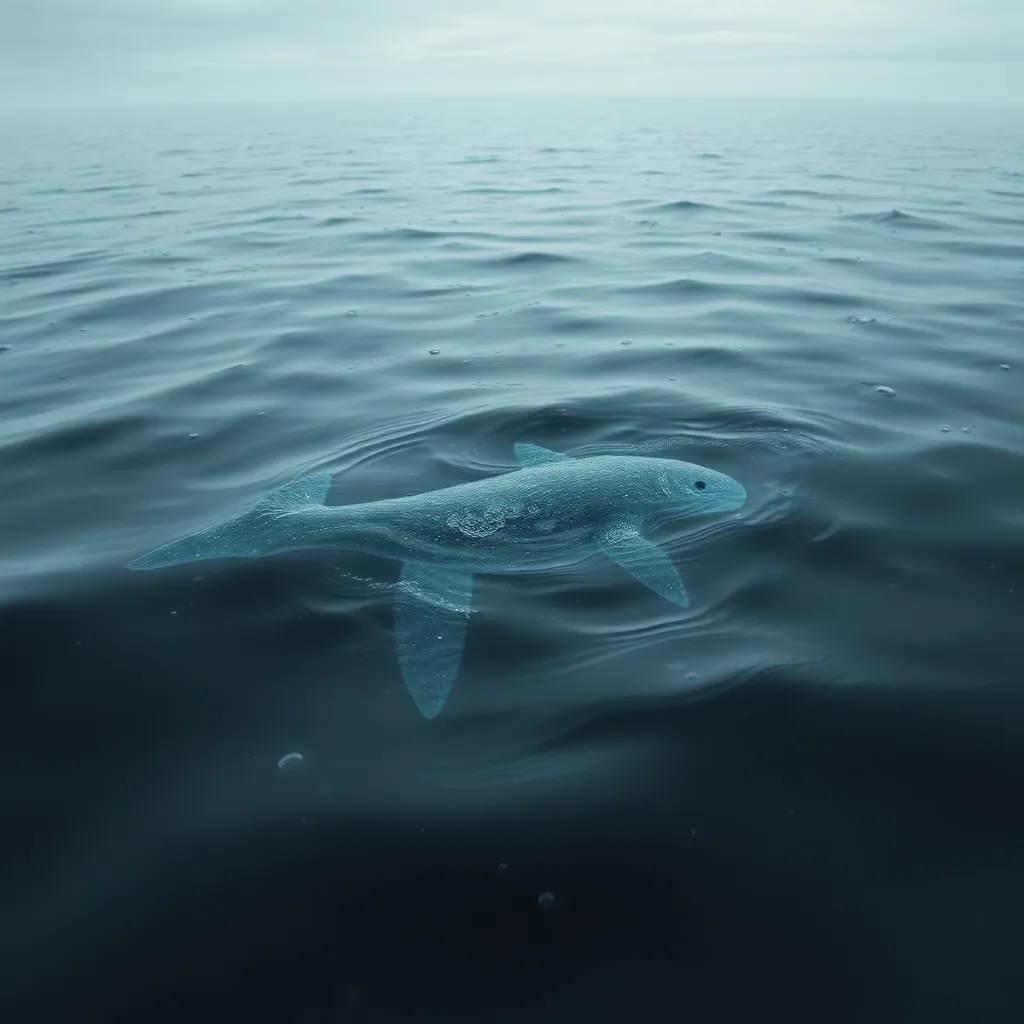The Mythical Waters: The Role of Water in Creation Stories
I. Introduction
Creation stories are narratives that explain the origins of the world, the universe, and life itself. These myths often reflect the cultural values and beliefs of the societies that tell them. Water, a fundamental element of life, holds a prominent place in many creation stories across various cultures. This article explores the significance of water in these narratives, examining its multifaceted role as both a life-giving force and a symbol of chaos and order.
II. The Symbolism of Water in Mythology
Water is one of the most powerful symbols in mythology, representing a range of concepts and ideas.
A. Water as a life-giving force
In many creation myths, water is depicted as the source of life. It nourishes the earth, allowing plants to grow and animals to thrive. This life-giving aspect is often associated with fertility and rejuvenation.
B. Water as a symbol of chaos and order
Conversely, water can also symbolize chaos. In many traditions, the primordial waters represent a formless state from which order emerges. The act of creation often involves the separation of waters to form land and sky.
C. The duality of water in creation narratives
This duality of water—both life-giving and chaotic—reflects the complexity of nature itself. In creation stories, water serves as a bridge between these opposing forces, illustrating the balance necessary for life.
III. Water in Ancient Near Eastern Creation Myths
The significance of water is particularly evident in ancient Near Eastern creation myths.
A. The Epic of Gilgamesh and the role of the primordial waters
In the Epic of Gilgamesh, the primordial waters are crucial for the creation of life. The character of Utnapishtim receives wisdom and guidance from the waters, underscoring their importance in the narrative.
B. The Enuma Elish: Tiamat and the birth of the cosmos
The Enuma Elish, a Babylonian creation myth, features Tiamat, a primordial goddess representing the saltwater ocean. Her conflict with the god Marduk culminates in the creation of the world, illustrating the transformative power of water.
C. Comparative analysis with other Near Eastern myths
Similar themes can be found in other Near Eastern myths, such as the creation account in Genesis, where the Spirit of God hovers over the waters, indicating the sacredness of water in the act of creation.
IV. Indigenous Creation Stories and Water
Indigenous cultures also attribute significant meaning to water in their creation stories.
A. Native American myths featuring water
Many Native American myths emphasize the sacredness of water. For instance, the Cherokee creation story involves a great flood, and the emergence of land from the waters is seen as a divine act.
B. Australian Aboriginal stories and the Dreamtime
In Australian Aboriginal culture, the Dreamtime stories often feature water as a vital component of creation. Rivers and lakes are revered as ancestral spirits that shape the landscape and sustain life.
C. The significance of rivers, lakes, and oceans in these narratives
- Rivers symbolize the flow of life and connection.
- Lakes represent stillness and reflection.
- Oceans embody the vastness and mystery of the world.
V. Water in Eastern Philosophies and Religions
Eastern philosophies and religions also feature water prominently in their creation narratives.
A. Creation stories in Hinduism: The cosmic ocean (Kshira Sagara)
In Hindu mythology, the Kshira Sagara, or the Ocean of Milk, is the primordial ocean from which the universe was created. The churning of this ocean by gods and demons produced various deities and treasures, highlighting the creative power of water.
B. Water’s role in Buddhist creation myths
Buddhist cosmology presents water as a vital element in the cycle of existence. The interplay of water and earth is fundamental to the emergence of life and enlightenment.
C. Taoist views on water as a source of life and creation
Taoism regards water as a symbol of the Tao, the fundamental principle that underlies and unites all things. Its flowing nature embodies adaptability and the essence of life itself.
VI. Water in Ancient European Myths
Water also plays a significant role in ancient European myths.
A. Norse mythology: The Well of Mimir and the cosmic waters
The Well of Mimir in Norse mythology represents wisdom and knowledge, fed by the waters of the cosmic tree Yggdrasil. The waters are seen as a source of understanding and enlightenment.
B. Celtic creation stories and their relationship with rivers and lakes
Celtic myths frequently feature rivers and lakes as sacred spaces. The River Boyne, for example, is associated with the goddess Brigid and is believed to be a source of inspiration and creativity.
C. The influence of water in Greco-Roman myths
In Greco-Roman mythology, water deities such as Poseidon and Oceanus symbolize both the nurturing and destructive aspects of water. The myths often reflect the duality of water’s nature.
VII. Contemporary Interpretations of Water in Creation Myths
In modern times, the significance of water in creation myths continues to resonate.
A. Modern retellings of ancient creation stories
Contemporary authors and artists often reinterpret ancient creation stories, highlighting the ongoing relevance of water as a symbol of life and renewal.
B. The role of water in environmental and ecological narratives
With growing concerns about climate change, water has become a central theme in environmental narratives, emphasizing its vital role in sustaining life and ecosystems.
C. Water as a metaphor in contemporary literature and art
Artists and writers use water as a metaphor for emotion, change, and the passage of time, reflecting its enduring significance in human experience.
VIII. The Psychological and Cultural Significance of Water in Creation
The psychological and cultural implications of water in creation myths are profound.
A. Archetypes associated with water in Jungian psychology
In Jungian psychology, water often represents the unconscious, emotions, and the source of creativity. It is seen as a powerful archetype that connects individuals to their deeper selves.
B. The impact of water symbolism on cultural identity
Water is often a symbol of cultural identity, representing the connection between people and their environment. It plays a crucial role in rituals, traditions, and stories that shape community values.
C. Rituals and traditions involving water in creation beliefs
Many cultures have rituals that involve water, such as baptism, purification ceremonies, and offerings to water deities. These practices reinforce the sacredness of water in their creation beliefs.
IX. The Intersection of Science and Myth: Creation Narratives in the Age of Climate Change
As climate change reshapes our understanding of the environment, it also recontextualizes creation stories.
A. How climate change recontextualizes creation stories
Many creation stories are being reexamined in light of environmental challenges, prompting a dialogue between ancient wisdom and modern science.
B. The role of water in contemporary environmental movements
Water is at the forefront of contemporary environmental movements, symbolizing not only life but also the urgency of protecting our planet’s resources.
C. Bridging the gap between myth and scientific understanding
By integrating mythological perspectives with scientific insights, we can foster a deeper appreciation for water’s role in our lives and the universe.</




